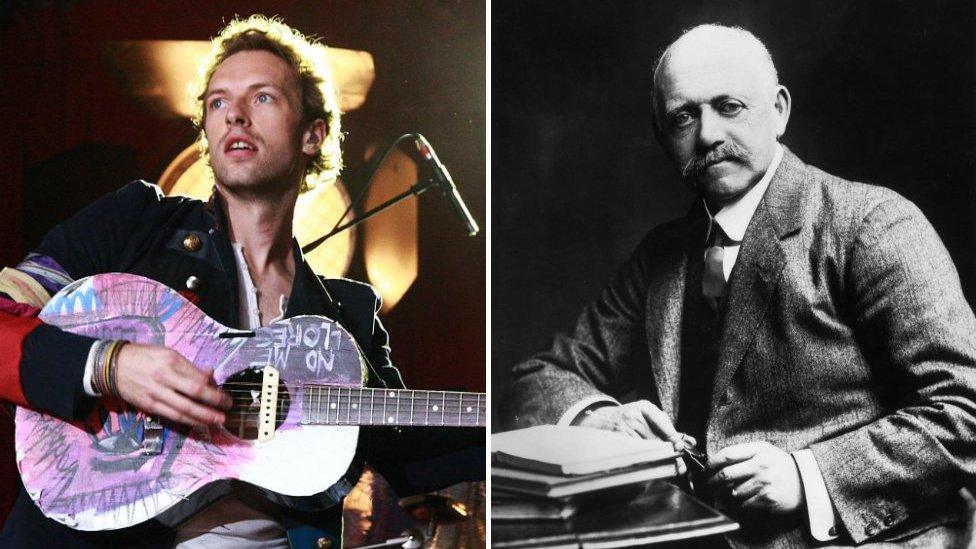This weekend, as we prepare to turn back the clocks for the winter months, the intriguing story of Daylight Saving Time comes to the forefront once again. Every year, the adjustment of the clocks during winter causes confusion and bewilderment. Many people are still unclear about why we need to do this — and especially who came up with the idea in the first place. But even more surprising is the special connection between Chris Martin, the lead singer of Coldplay, and this very story. No, it’s not just about Coldplay’s famous song “Clocks” that you might be thinking of.
Here's ads banner inside a post

Also known as British Summer Time, the clocks were set forward earlier this year in March, and now they will be set back on Sunday, October 27. Interestingly, the man we can thank for this tradition is none other than Chris Martin’s great-great-grandfather. This tradition has been in place in the UK since 1916.
William Willett – The Advocate for Daylight Saving Time
William Willett (1856 – 1915) was a builder and the pioneer advocate for British Summer Time in the UK. He was born in Farnham, Surrey, and studied at the Philological School in Westminster. The story goes that one morning, while riding his horse through Petts Wood, Kent – where he spent most of his life – Willett noticed that many homes still had their blinds down even though the sun was already shining. From this observation, the idea of Daylight Saving Time was born.
Here's ads banner inside a post
However, Willett was not the first person to think of saving daylight. The idea has its roots in ancient times when people sought to make the most of natural light for daily activities. In fact, a New Zealander named George Vernon Hudson had already proposed the concept in the modern world. Nevertheless, it was Willett who popularized the idea in the UK.
How Did William Willett Push for Daylight Saving Time?
Using his personal resources, in 1907, William Willett published a pamphlet titled “The Waste of Daylight”, in which he expressed his frustration that his golf games were often cut short as the sun set. In the pamphlet, he proposed advancing the clocks by 80 minutes in four stages during April and reversing the same way in September. His idea was to extend daylight into the evenings, thereby increasing sunlight hours and saving approximately £2.5 million in lighting costs.
Here's ads banner inside a post
Thanks to his tireless efforts, by 1908, Willett had gained the support of MP Robert Pearce and a young Winston Churchill. However, the UK didn’t officially adopt Daylight Saving Time until after Willett’s death in 1915.
World War I and the Historic Change
In 1916, during the height of World War I, the German army first moved the clocks forward to save energy. Shortly after, many European countries — including the UK — followed suit and implemented Daylight Saving Time as a wartime measure.
The Fascinating Connection to Chris Martin and Coldplay
A surprising fact is that Chris Martin’s great-great-grandfather, the man who pushed for Daylight Saving Time, was none other than William Willett. Coldplay, with their famous song “Clocks”, seems to carry a subtle connection to the legacy of time, light, and darkness — concepts that Willett passionately advocated for.
Coldplay’s “Clocks”, with its iconic piano melody and haunting lyrics about the passage of time, has become one of the band’s timeless classics, beloved by fans worldwide. Although not directly related to Daylight Saving Time, perhaps the themes of time in Coldplay’s music are inspired, in some way, by the Martin family’s legacy.
For Coldplay fans, as you turn your clocks back this weekend, it might be a time to reflect on the intriguing history of Daylight Saving Time and the unexpected influence of the Martin family on both music and culture. Coldplay, with songs like “Clocks”, is not just a band — they’ve left a lasting impact on both the music world and the way we think about time.
As summer comes to an end and daylight begins to fade earlier each day, you might want to play a few of Coldplay’s hits, enjoy “Clocks”, and remember William Willett – the man who helped us make the most of daylight in a way he likely never anticipated.

